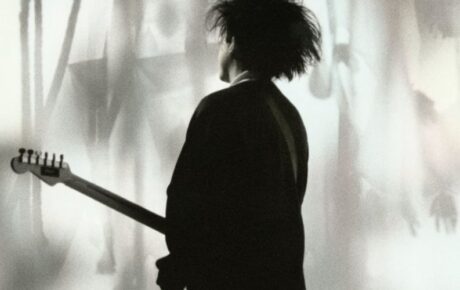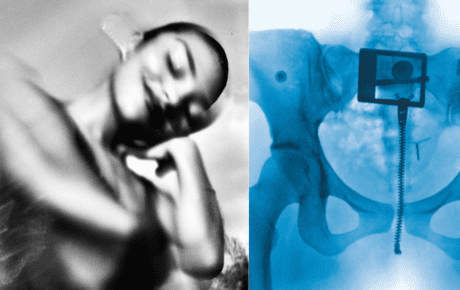Folk icon Hozier has again given us ear blessings with his most recent album Unreal Unearth. Despite walking through Hell with his chilling literary references in the form of Dante’s Inferno, Hozier unequivocally brings the light to his audience in this long-awaited third instalment.
Chronicling recent years of loss, change and grief, Hozier reflects on classics with his own melodic spin in this pandemic-era creation.
Unreal Unearth opens with the profoundly haunting pairing of ‘De Selby’ parts 1 and 2. Hozier injects his typically complex lyrics from the beginning on UU, as he sings lines like ‘your reflection can’t offer a word / to the bliss of not knowing yourself’ in part 1. The second half of part 1 also brings a surprise in the form of Hozier entwining the Irish language into the album, which comes across as both powerful and perfect, even if you don’t understand the words on the first listen. ‘De Selby’ part 1 is just the beginning of this mixture.
With ‘part 2’, a rapid pace change ensues, with the track being less quiet this time. ‘De Selby part 2’ was the third and final single from the album and takes inspiration from De Selby, a fictional philosopher from Flann O’Brien’s The Third Policeman. The song explores the themes of darkness in the context of connection to self, others and the sense of time in space.
We then get track 3, ‘First Time.’ Audiences now get the first taste of direct Greek mythological references in the line ‘I drank dry the river Lethe.’ This track represents limbo and discovering oneself through introspection for the first time. It’s a perfect track for those searching for themselves while battling others’ ideas of them, and Hozier emphasizes how this process is natural.
‘Francesca’ was the debut single from Unreal Unearth and was inspired by the second circle of Hell, known as Lust. Through the powerful melody, Hozier draws attention to the tragedy that can befall those in love as he parallels the story of Francesca de Rimini. For those unfamiliar with the story, her narrative is explored in The Divine Comedy, during which Francesca falls in love with her husband’s brother and consequently dooms them both. The track debuted in live shows in July in London and Paris, but by the time of release, it had only been played live those two times.
‘I Carrion (Icarian)’ is perhaps one of Hozier’s more explicit mythology references on the album. Directly referencing the famous story of Icarus and Daedalus, Hozier effortlessly gives audiences his powerful interpretation of this, yet again, tragic story’s ending. Hozier provides both perspectives through the lyrics as he challenges the hope of young Icarus as it turns to fear while simultaneously echoing the apprehension of his father.
We then receive ‘Eat Your Young’, the other single released before the album. Opening with almost jagged beats, Hozier sings, ‘I’m starving, darling / let me put my lips to something’ with raw desperation. The feast and the chaos which come with it are Hozier’s interpretation of Hell’s third circle, Gluttony. It has been theorized that the title comes from the 1729 satirical essay, ‘A Modest Proposal’ by Jonathon Swift. This track is the first hint that while Hozier’s inspiration is undoubtedly Dante, the album may not explore the circles chronologically.
The first collaboration of the album then arrives with ‘Damage Gets Done.’ The featured artist is Brandi Carlile, whose tones make the song a dulcet pairing. The track is self-aware and triumphant when discussing the space between being young and reckless. This is perhaps the most lively of every piece on the album. Highlight lyrics include ‘you were steering my heart like a wheel in your hands’ and ‘we had nowhere to go / and every desire for going there.’ Listen to this one when you want to feel nostalgic.
From upbeat youth to slow romanticism, ‘Who We Are’ once again circles back to self-discovery in an era of overwhelming longing. The track is of acceptance despite the flaws you might see in yourself, and the hauntingly soft piano provides the perfect backdrop to this idea as it lunges and ebbs with the song’s continuation. Using piano to convey big emotion is something Hozier continues to do remarkably well, and ‘Who We Are’ proves no exception.
With ‘Son of Nyx,’ Hozier again transports us to the Greco-Roman world. For those unversed (personally, I can’t relate, considering I did an ancient history degree), Nyx is the Greek goddess of night. Like with ‘Icarian’, the metaphors are explicit, yet undescribed in this track without words. By creating this instrumental piece, Hozier adeptly reflects the solitary unknown and peace that the nighttime brings. With this in mind, ‘Son of Nyx’ gives the album a brilliant middle.
On the surface, ‘All Things End’ seems like a track representing the end of a romantic relationship – but it’s far more profound than that. ‘All Things End’ had technically come out before, with a feature on the Eat Your Young EP, which arrived on streaming platforms earlier in 2023. The music video added those layers to the track, which float beneath the surface as it takes place in a medical environment. Hozier falls into a fever dream on the operating table, and it’s an entrancing watch. Really, it’s up to the viewer how to interpret the symbolism, but to me, it speaks of the natural order, life’s impermanence and the speed through which things change. I think ‘All Things End’ is one of those songs that’s as deep as you make it.
‘To Someone from a Warm Climate (Uiscefhuarithe)’ again injects Irish moments into this transformative track’s lyrics. Describing the type of all-encompassing love which feels natural as breathing, Hozier uses the weather extremes to pointedly explain the impact this experience can have on an individual’s life, from the unfamiliar, chilly experience of not knowing how to react when first receiving gentle love to the warmth that spreads to your bones upon realizing its careful intentions. I particularly love the line ‘darling all my dreams are put to shame’ upon which the subject realises reality is so much better than anything that they have previously dared imagine. While a direct reference to Dante is not present here, to me, it’s one of the album’s sweeter tracks.
‘Anything But’ reminds me of Hozier’s past discography in a way, in the forms of singles like ‘Almost (Sweet Music).’ Its cheerful, upbeat start and rhythm are almost identical to the song above. Hozier sings, ‘If I was a riptide, I wouldn’t take you out,’ ‘but I would do everything if you hear me say oh yeah’ and ‘I wanna be the shadow when the future’s right behind me’. While the song’s themes convey the hope of trying to escape current circumstances and the complexity of identity, it’s hard not to get up and dance to this one. It’s one of the album’s best simply for the instrumentals and parallels throughout. Undoubtedly, it’s the song I’ve had on repeat the most while writing this review.
The seventh circle appears with the addition of track 12, ‘Butchered Tongue.’ Dante’s 7th is the circle of violence, or ‘The Hell of the Violent and Bestial.’ The circle in the poem is divided into 3, each representing another type of violence. Using references to the Wexford rebellion of 1798, Hozier once again proves his ability to turn real-life events into meaningful messages through song. On the track, Hozier emphasizes his appreciation for the retention of Indigenous culture retention, which is not always the case. This reference shows Hozier mainly emphasizes the ‘outer circle’ where those who commit violence against those who hurt people and their property are punished in various terrible ways. It makes sense that this is what Hozier chooses to depict in the single, being Irish himself.
A heavy, slow jolt brings us back to Earth (and perhaps, to Hell) because of the following track ‘Abstract (Psychopomp).’ The song reflects fleeting moments, gratefulness for the present, and the beauty of simplicity. In religious and mythological studies, a psychopomp is a spirit that guides the living to the afterlife. Written from the perspective of someone Hozier calls ‘Sphinx-like’, ‘Abstract’ is where we get the allusions to Dante’s 8th. A sphinx is present in the 8th circle’s ‘9th pouch’ known as the ‘pouch of the sewers of discord.’ Here, souls are being split and wounded as they yearn for the comfort of earthly existence, while the title refers to a psychopomp comforting them during their transition. Hozier’s reminder to listeners here to treasure their time is raw, moving and, in many ways, spiritual.
Described by Hozier himself as exploring the pain of having your heart broken by someone you trusted, ‘Unknown / nth’ is the ninth circle of Hell in this interpretation. In his TikToks covering the album’s songs, Hozier reflects on the circle of treachery by explaining how heartbreak can happen more than once while also playing on ‘nth’ phonetically resembling ‘ninth.’ The lingering lyrics’ emotions dredged up are almost potent in their power.
Closing song ‘First Light ends the album on a hopeful note. As Hozier sings about finally seeing the light, there’s an innate sense that the subject has left the nine circles to finally discover peace. It’s a fitting conclusion to this traverse album, which has sent those exploring it on a journey through the complexities of the human soul. Hozier said in an interview ‘First Light’ that even Hell ‘has a way out’ – and a way out it does.












